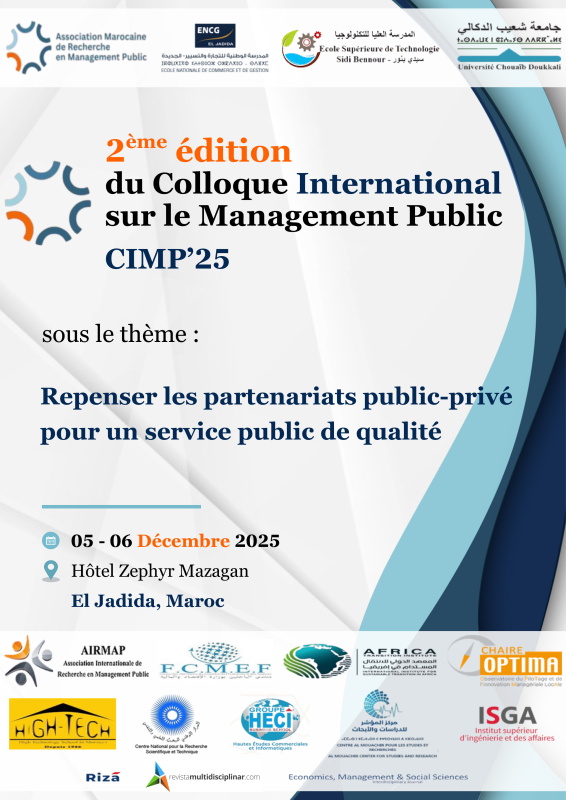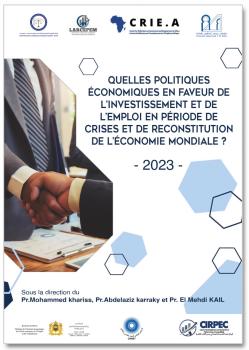The Unseen Architectures of Economic Discourse
A Study of Metaphorical Structures and their Influence on Thought and Policy
Mots-clés :
Conceptual Metaphor Theory, Economic Discourse, Cognitive Linguistics, Policy Framing, Rhetoric of Economics, IdeologyRésumé
This paper explores the unseen cognitive and rhetorical architectures underlying economic discourse through the lens of Conceptual Metaphor Theory (CMT). Drawing on the seminal works of Lakoff and Johnson (1980) and the rhetorical insights of Deirdre McCloskey, it argues that metaphors are not merely decorative linguistic devices but fundamental cognitive frameworks that shape how individuals and policymakers conceptualize, evaluate, and act upon economic phenomena. By identifying and analyzing dominant metaphorical systems—such as THE ECONOMY IS A MACHINE, THE ECONOMY IS A LIVING ORGANISM, MONEY IS LIQUID, and ECONOMIC CRISIS IS A DISEASE—the study demonstrates how these metaphors structure thought and discourse, influencing both academic theory and public policy. The paper further examines the historical transformation of Adam Smith’s “invisible hand” as a case study of how metaphors evolve into ideological instruments. Through a synthesis of theoretical and rhetorical analysis, this work reveals that metaphors in economics do not merely describe reality but actively construct it, shaping collective understanding and guiding policy orientations. The conclusion calls for greater critical awareness of metaphor’s dual power—to clarify and to mislead—and urges economists, policymakers, and the public to recognize the cognitive and ideological implications of the language through which economic thought is articulated.
Références
Baranzini, M., & Besomi, D. (Eds.). (2021). Metaphors in the history of economic thought: Crises, business cycles, and equilibrium. Routledge.
Charteris-Black, J. (2005). Politicians and rhetoric: The persuasive power of metaphor. Palgrave Macmillan.
Chifane, C. (2016). Metaphors of the crisis: A reflection of the global financial situation. Journal of Economic and Financial Sciences, 4(2), 45–58.
Ecocommerce. (2025, September 1). The economy as a biological organism. Medium. https://ecocommerce.medium.com/the-economy-as-a-biological-organism-6dcccbddfb5f
Federal Reserve Bank of St. Louis. (2016, March). Martin’s punch bowl metaphor. FRASER Blog. https://fraser.stlouisfed.org/blog/2016/03/martins-punch-bowl-metaphor/
Investopedia. (2025, September 1). The invisible hand. https://www.investopedia.com/terms/i/invisiblehand.asp
Kövecses, Z. (2008). Conceptual metaphor theory: Some criticisms and alternative proposals. Annual Review of Cognitive Linguistics 6(1):168-184. https://url-shortener.me/9513
Krugman, P. (2012, November 15). The macroeconomic patient. The New York Times. https://www.nytimes.com
Lakoff, G., & Johnson, M. (1980). Metaphors we live by. University of Chicago Press.
Kövecses, Z. (2010). Metaphor: A practical introduction (2nd ed.). Oxford University Press.
McCloskey, D. N. (1998). The rhetoric of economics (2nd ed.). University of Wisconsin Press.
Miao, Z. (2023). A cognitive analysis on conceptual metaphor in English economic discourse. English Language Teaching and Linguistics Studies 5(2):p93. https://doi.org/10.22158/eltls.v5n2p93
Mirowski, P. (1989). More heat than light: Economics as social physics, physics as nature’s economics. Cambridge University Press.
White, J. B. (2003). Economics as story-telling: The example of the invisible hand. In J. B. White (Ed.), Economics as a language (pp. xx–xx). University of Michigan Press.
Yus, F. (2007). Metaphor and economics: The case of growth. Intercultural Pragmatics, 4(1), 1–23.
Publiée
Comment citer
Numéro
Rubrique
Licence
(c) Tous droits réservés Youness FAIZ 2025

Ce travail est disponible sous licence Creative Commons Attribution - Pas d’Utilisation Commerciale 4.0 International.







